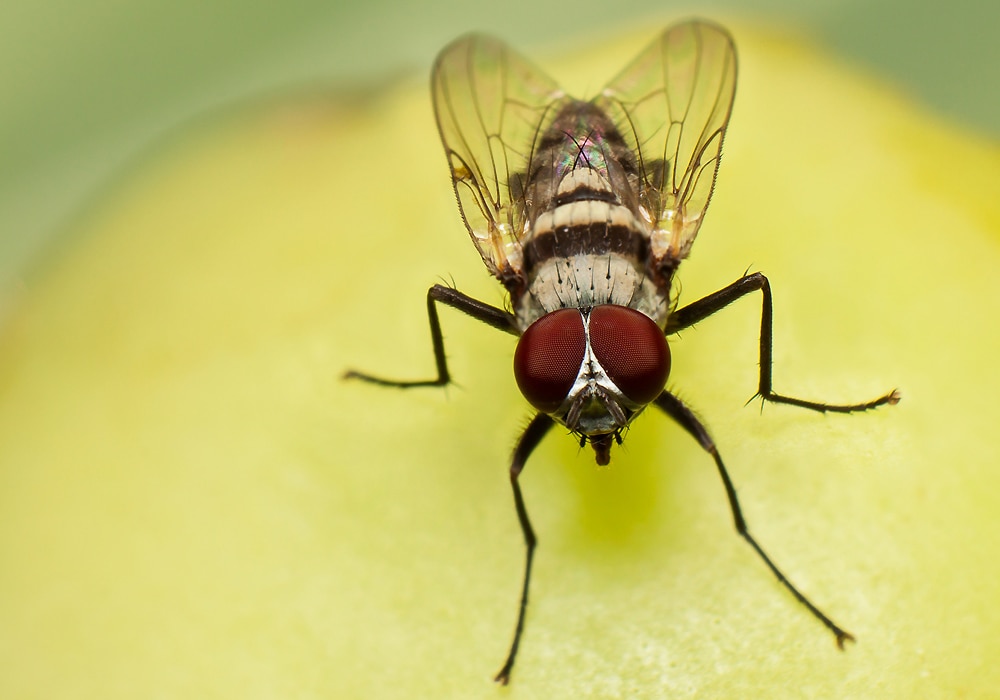Flies are nobody’s favorite animal. They aren’t cute and cuddly like dogs or cats and they don’t have elegance or poise that make swans or peacocks so popular. They’re connected with rot, decay, and disgust. But is that all there is to the humble fly? The symbolism of the fly is often distasteful, but flies fill an important ecological niche. Maybe flies aren’t so bad!. From prosperity to industriousness to anxiety to filth, let’s explore the many meanings of the fly— both good and bad.
Table of contents
Fly Symbolism and Meaning
Most people consider flies to be dirty, gross, or annoying. When you’re trying to enjoy a meal and a fly lands in your food, they certainly live up to this reputation. But fly symbolism can still provide us with useful insights. Flies may warn of impending danger or alert us to areas of our lives which we have neglected. They represent the nagging issues that buzz at the backs of our minds.
Negative emotions
Flies can sometimes represent malice, blame, or hate. This is due, in part, to the ways that flies make us feel. They hover around us buzzing obnoxiously until, no longer able to ignore the annoyance, we slap away the pesky insect and set out fly traps for good measure. So, flies may represent negative feelings or a loss of self control. Additionally, bad influences can be likened to flies.
Adaptability
One of the less grim meanings for the fly is adaptability. Flies find ways to survive and make the best out of any situation. They truly embody the “one man’s trash is another man’s treasure” idiom.
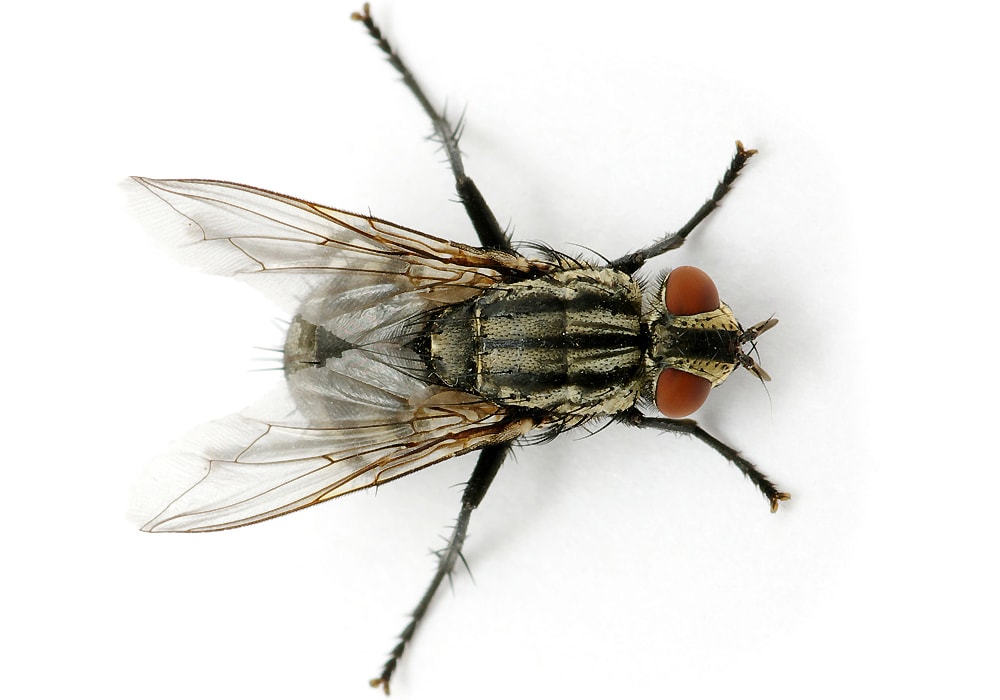
Wealth
Flies can also symbolize motivation, wealth, and abundance. Even in a harsh environment, the fly triumphs over misery, managing to feed and breed. Flies represent the importance of seizing opportunities that come your way, no matter how others might perceive you.
Growth
Gnats and fruit flies are similarly connected to adaptability. They are also connected with growth, transformation, and renewal. Gnat symbolism reflects sharp vision and intuition. Having a gnat as your spirit animal means that you can see a situation from different angles.
Fly Native American Symbolism
Flies do not appear very often in the myths and stories of Native American cultures. For many tribes, the meaning of flies is linked to disease and curses or dark magic. However, the nations of the Southwest consider these insects to be messengers or bringers of the first fire to the people.
For the Navajo tribes, the fly represents a connection to those that came before. Flies are thought to bring messages from one’s ancestors.
Big Fly, also called Do’ tosh or the Sacred Fly, is the protector of Navajo sand painting. Big Fly is said to linger near sand painters while they work, and may even sit on the painters’ shoulders.
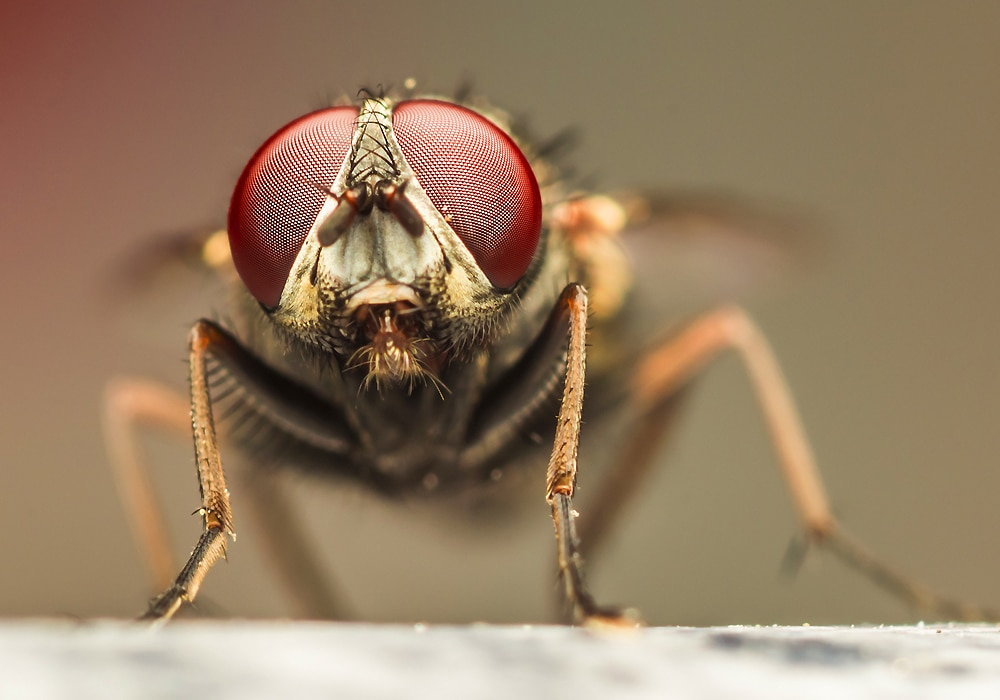
The Hopi Death Fly, known as Mastop, is a pair of kachinas or dolls. These kachinas were used during the Soyal Ceremony and represented a prayer of fertility for the Hopi women.
Another important kachina for the Hopi people is the Fly or Sohonasomtaka. This doll would protect the Hopi ceremonies from the strangers’ intrusions.
Sohonasomtaka is also depicted as a warrior who punishes the clown kachinas when they go wild. Flies in Native American cultures appear in a variety of forms. These forms can be both malevolent spirits or positive guardians depending upon context.
Fly Eastern Symbolism
The spiritual meaning of the fly in the Eastern world is mainly connected to death and evil. The Mesopotamian God of death, war, and plague, Nergal, was depicted in the form of a fly. Because he ruled the netherworld, Christians associated Nergal with a demonic presence. Flies are even depicted on ancient seals as representations of Nergal.
Throughout the Eastern world, flies are frequently seen as harbingers of death, bearers of pestilence, and companions of evil.
Flies in Mesopotamia are not limited to representing such evil concepts. The goddess Ishtar’s fanatics were using fly-shaped beads to self-flagellate them to induce ecstasy.
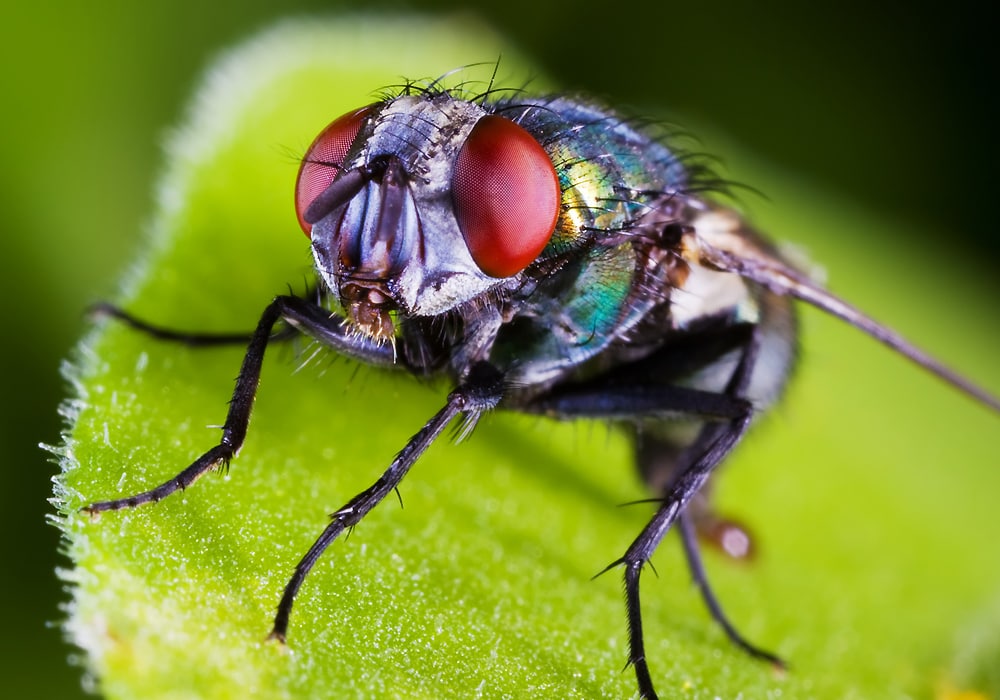
Ishtar was the goddess of sexual love and war. Similarly to the Hopi people of the Americas, the fly was also a symbol of fertility in Mesopotamia. In one ancient Sumerian poem, a fly helps the goddess Inanna exit the underworld, where she went to save her husband. In this story, the fly is a helpful spirit.
Maggots are potent symbolic figures within Chinese culture. Legends from China describe the human race emerging from worms within a primordial being. Flies’ larvae have a strong connection to the ever-renewing cycle of life.
Fly Christianity symbolism
Biblical symbolism usually treats flies as detestable beings connected with the very root of evil itself. These insects represent Satan, who is known as the “Lord of the Flies.”
Why do flies represent evil? This may stem from their tendency to act as scavengers or parasites. More likely, though, it is related to the fact that flies feed off of carcasses. They are a part of the process of decomposition and decay, and as such, are inextricably linked with death.
Flies swarm around sick people or animals. They are also drawn towards places where bad smells emerge. Is it really much of a surprise, then, that flies are linked to everything dirty and impure?
The meaning of flies in the Bible is strictly related to the presence of evil. Both the Old and New Testament depict numerous scenes were swarms of flies torment people.
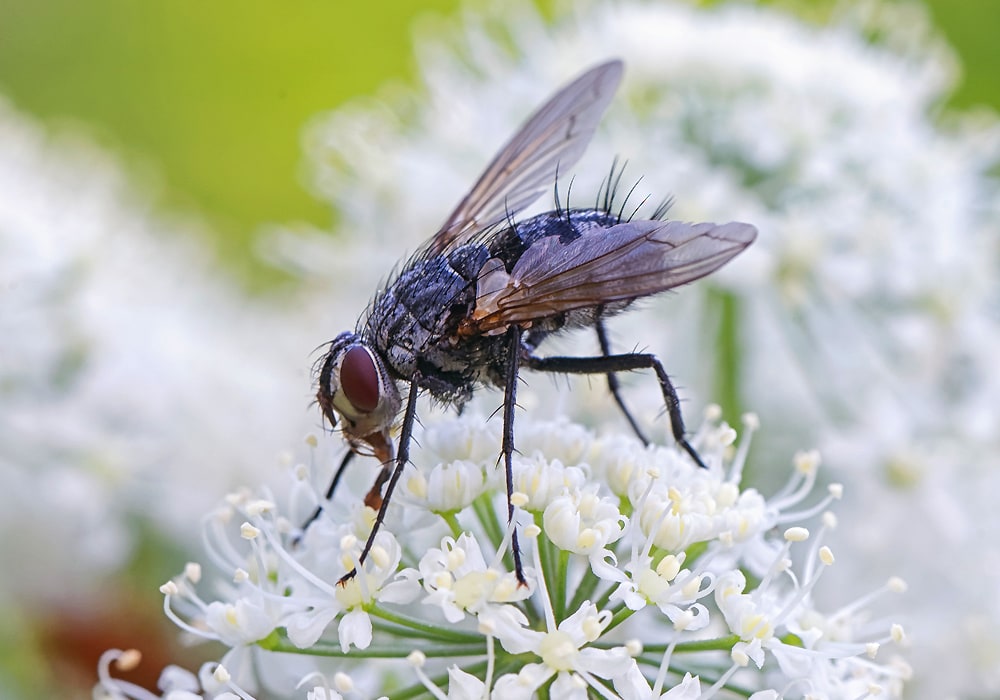
Egyptians felt the wrath of God when they refused to release the Israelites from slavery. God’s fourth plague against the Pharaoh and his people was of swarm of flies which tormented both people and livestock.
During the conflicts between Catholics and Protestants in England, the religious heretics were likened to flies.
Fly Celtic Symbolism
Flies are rare in Celtic mythology, so it is hard to say what the flies mean spiritually for the ancient Celts. However, maggots make frequent appearances in old druidic legends.
Maggots are sometimes found in marshy aquatic surroundings. The rotting vegetation and stagnant setting are the perfect symbol for death and decay.
However, by thriving in this harsh habitat, these little creatures are a powerful symbol of transformation and evolution. Although ancient Anglo-Saxon healers strongly believed that worms or maggots caused some diseases, the way that flies change forms and assist human bodies through decomposition could connect them with the inevitable and necessary transitions that occur throughout a person’s life and eventual death.
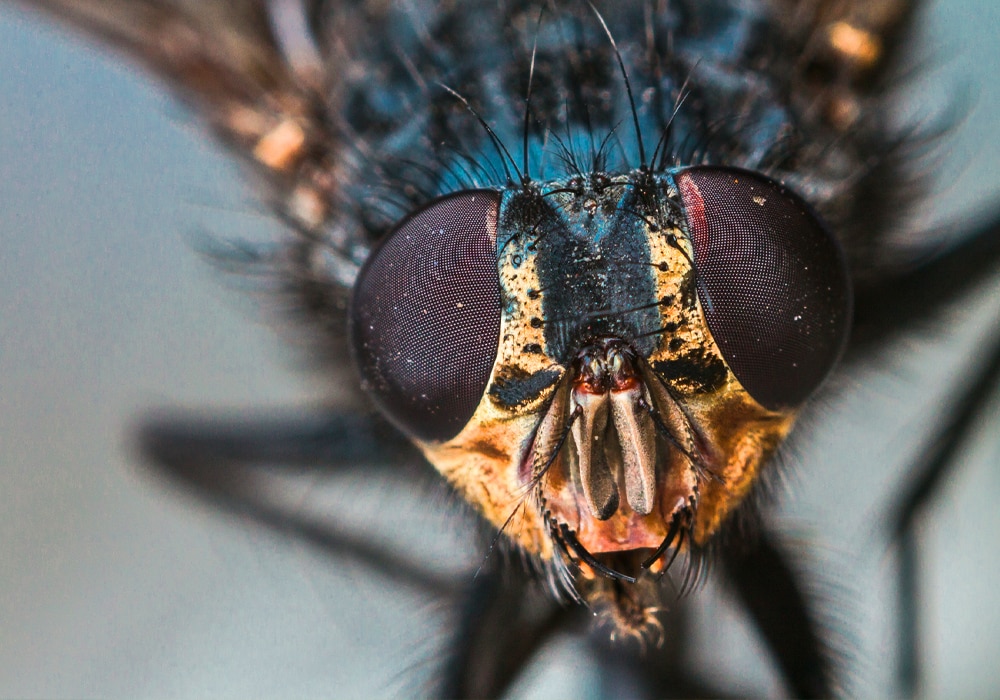
Irish Celts refrained from touching the maggots, believing them to be disease carriers. It was believed that the greatest of healers could kill maggots by merely touching them.
Celtic peoples connected both flies and maggots to death and the underworld. In most cases, this rendered flies as negative symbols, however their tenacity and ability to change forms may have redeemed them slightly.
Fly African Symbolism
Moving now to the civilizations of Africa, the fly has a more varied range of associations. For the ancient Egyptians, flies were not so maligned as within the cultures discussed above.
Even though flies are almost universally regarded as a source of disturbance, ancient Egyptians did not seem to see them as such. The fly was a symbol of perseverance and bravery. A gold chain with three fly-shaped pendants was found in Queen Ahhotep I’s tomb.
This necklace was given to the queen by her sons. It is believed to have been a token of appreciation for her support during the fight for liberation against the Hyksos. Smaller golden fly amulets were given to soldiers in the New Kingdom to recognize bravery and persistence during a battle.
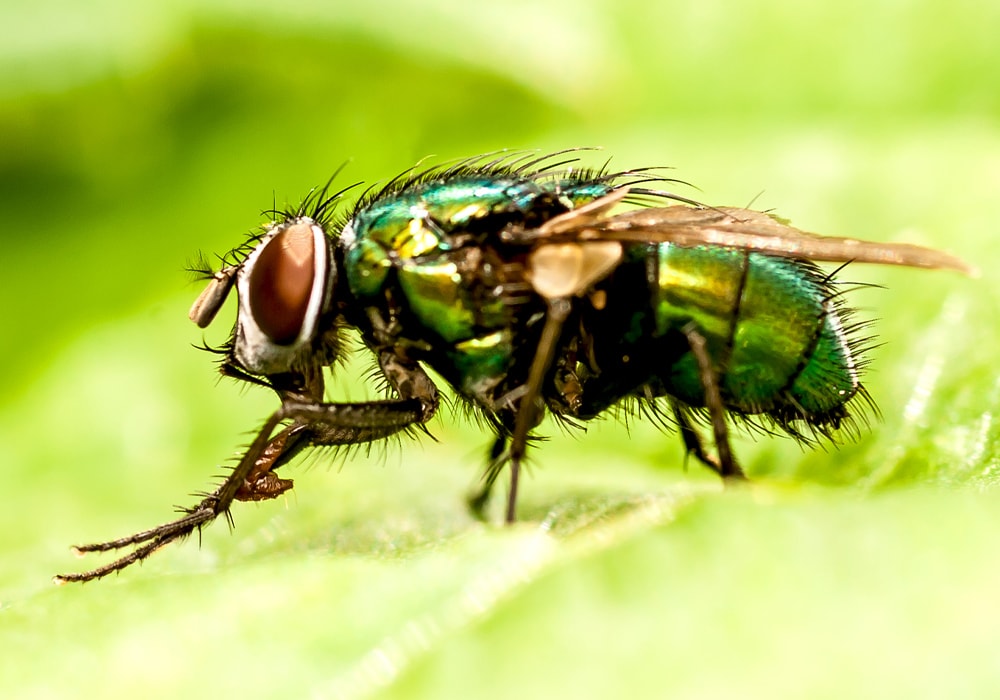
These amulets are similar to modern medals of honor, and only those who demonstrated great courage and loyalty were eligible to receive them.
Flies were also associated with the afterlife and the human soul. They would lay eggs on the dead bodies of Egyptians prior to the embalming process. Then, the fly larvae would develop in adults who would emerge before the completion of embalming. Egyptian priests believed these flies were connected to the soul leaving the body.
Small fly-shaped amulets were sometimes placed on mummies in an effort to help the soul reunite with the body. During the Old and Middle Kingdom, the hieroglyph depicted as a fly was used to represent bravery.
Flies in Dreams
Dreaming of flies can symbolize unrest, anxiety, or difficult times ahead. Before becoming too alarmed, though, it is important to analyze the context of a fly’s appearance in a dream.
Dreaming of flies may represent annoyances or harmful relationships. Friends who surround you with negative energy or criticism may be represented by flies. If you dream of swarming flies, it may be a sign to be careful of the friends that you surround yourself with.
Dreaming about flies may seem like a terrible omen, however, such a dream may act as a forewarning which allows you to prevent a problem before it begins. In this way, dreaming about flies can be a gift.
A fly in a dream might mean that you are neglecting something or someone important. It can also suggest that you are stubbornly holding onto something you should let go of. Such a dream is no cause for panic. Just examine your habits and look for areas in which you could implement some positive changes.
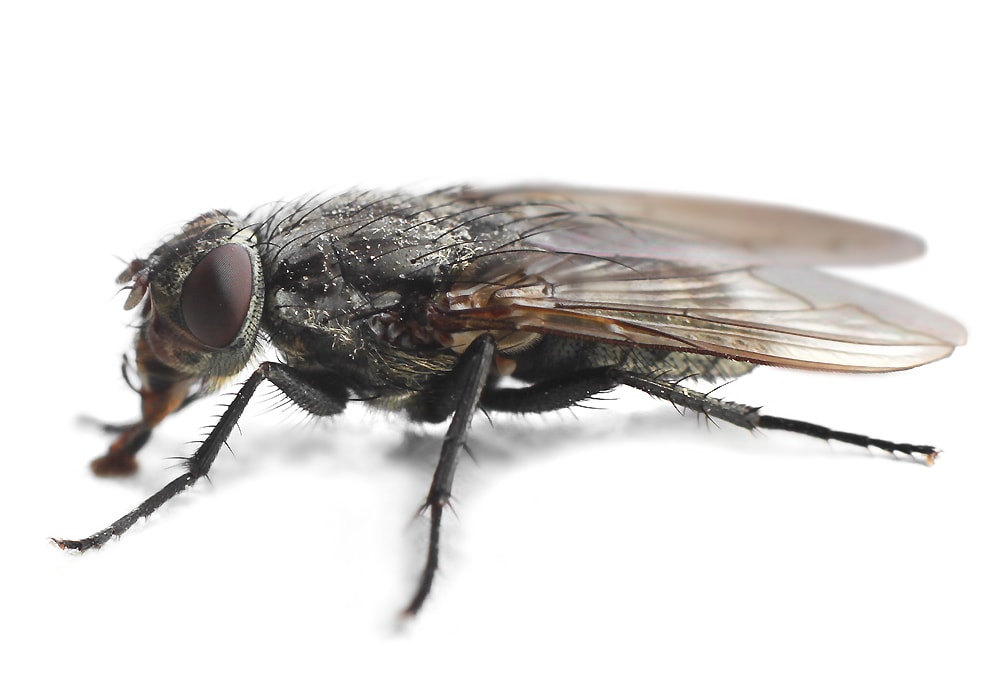
A recurring dream about flies might point towards the possibility of losing something or someone important. The prophetic meaning of flies is often thought to signify death and loss. This doesn’t have to be a sign of impending doom, though.
In fact, such a dream may simply mean that we must face our fear of impermanence in order to grow as people. Accepting that all things end is very difficult, but once it has been done it can help us to live a more present and free life.
Dreaming of dead flies is usually a positive omen that connects to overcoming challenges. Dead fly symbolism is related to the end of a confusing situation. Dreaming about dead flies may indicate the start of a period of peace and tranquility.
Fly Encounters and Omens
What does it mean when a fly is won’t quit buzzing around you? This can be an annoying situation, and it can even be thought of as a bad omen that represents a warning for the future. But don’t worry! Fly encounters are common and don’t necessarily signify anything scary.
Flies are seen as harbingers of disaster, heralds of death. Encountering a fly or a swarm of flies might mean that there is a source of danger or turmoil in your life that needs to be addressed. But it can also mean that something about your energy is attracting both positive and negative attention. Think about the kind of energy you want to bring into your life and try to project that outwards.
Encountering flies may also be a sign of stagnation. Flies are attracted to dead things. If your life path is no longer moving forwards, if you are stuck or your goals have begun to decay, this may attract flies to you. Encountering a fly may indicate the need for a change in your routine or scenery.
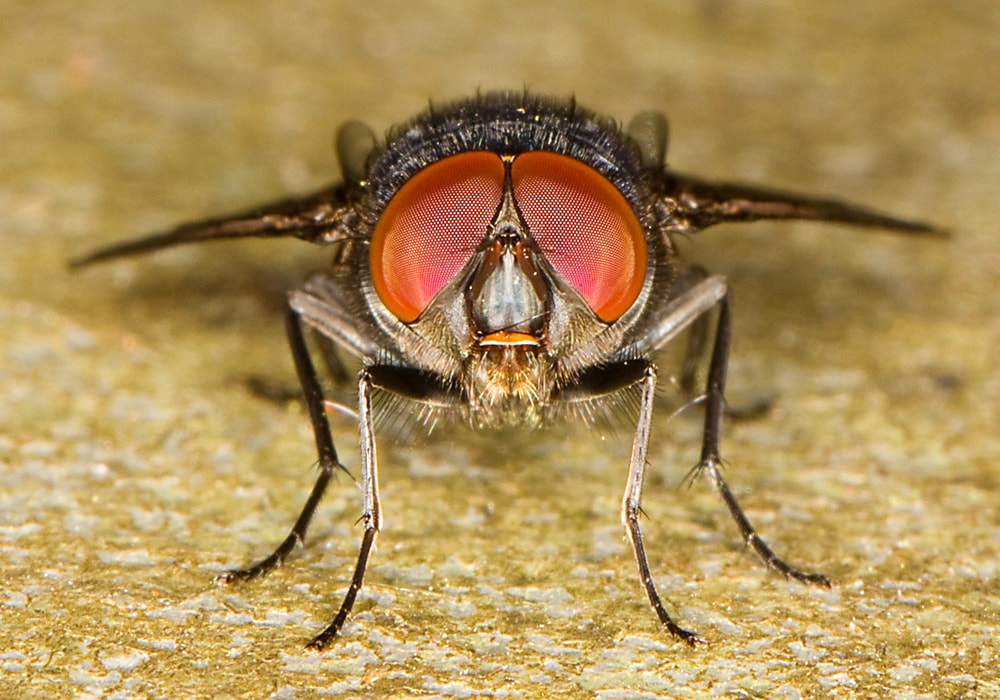
Flies in the house may symbolize the breakdown of family relationships. To combat this, make sure all members of the family are communicating their needs with one another. Flies in the home may signify bottled emotions which need to be let out in order to heal and bond again.
A single fly following an individual may be a sign that a stranger is soon going to enter that person’s life.
Overall, the presence of a fly is usually a negative sign which inspires negative emotions. It is important to remember, though, that bad omens are often warnings which allow us to correct our paths before the worst can come to pass.
Fly Mythology and Folklore
To understand the spiritual meanings of flies across human cultures, we must look into the mythology and folklore surrounding this insect.
Flies make frequent appearances throughout the world’s mythologies and cultures, although these appearances are not often positive. For example, Greek and Roman mythologies detest flies and describe them as tormenting the innocent.
In one story, the almighty god Zeus wooed a naïve girl named Io. Fearing his wife’s jealous vengeance, Zeus then transformed Io into a cow. Just as Zeus had suspected, Hera sought to punish the girl. She sent a fly to torture Io by painfully stinging her day after day.
In some instances, the Greeks also associated flies with disease. The ancient Eleans used to invoke Myacoris, the God who defends against flies, as a ward against pestilence.
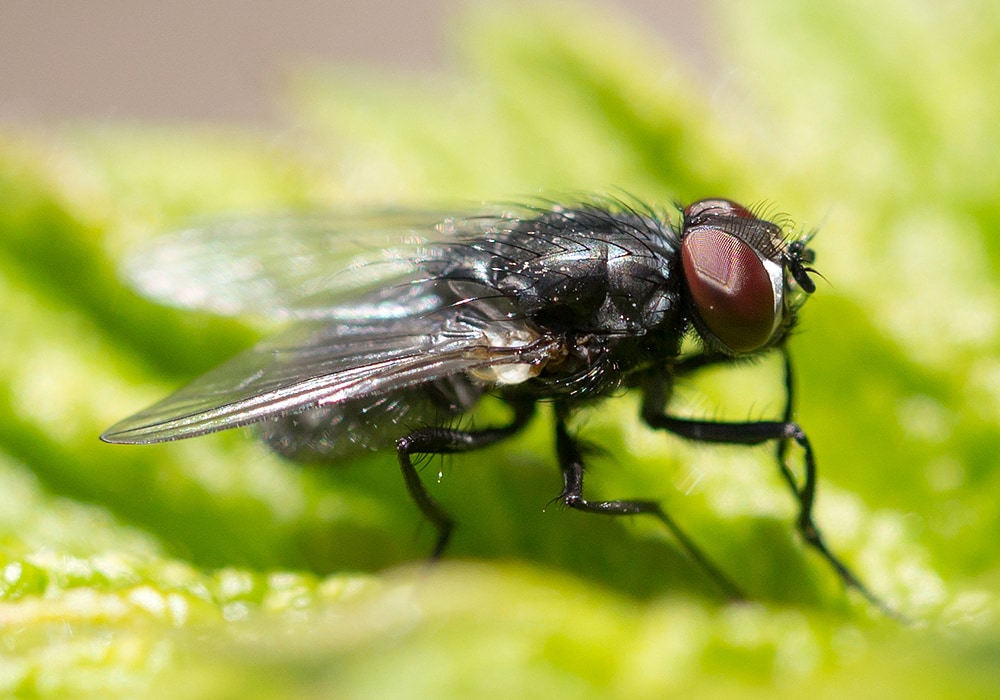
One fascinating story from Sardinia connects flies with the apocalypse. According to this tale, hidden somewhere upon this beautiful island, a fantastic treasure awaits to be discovered. The prize consists of two barrels: one filled with riches beyond imagination, while the other contains only dead flies. The legend states that anyone who opens the barrel with the flies will doom mankind and bring about the destruction of the world.
Norse mythology also features the fly. Loki, the Norse trickster deity, chose the fly as one of the shapes he took to play one of his tricks. Thus, flies can be connected to deceit.
According to the Indian folklore, a swarm of flies might predict rain.
Fly Spirit Animal
As a spirit animal, flies may not seem all that special, but the humble fly is capable of imparting great wisdom. As spirit animals, these insects are connected with perseverance, transformation, vision, and adaptability.
The fly spirit animal can be an asset when it comes to confronting change. The fly spirit teaches us to face unwanted changes and to adapt to that which is inevitable.
The fly spirit animal also provides valuable lessons in humility. Much of our negative feelings stem from the consequences of pride. Instead of wallowing in our damaged pride, the fly teaches us to be humble and grateful for what we have.
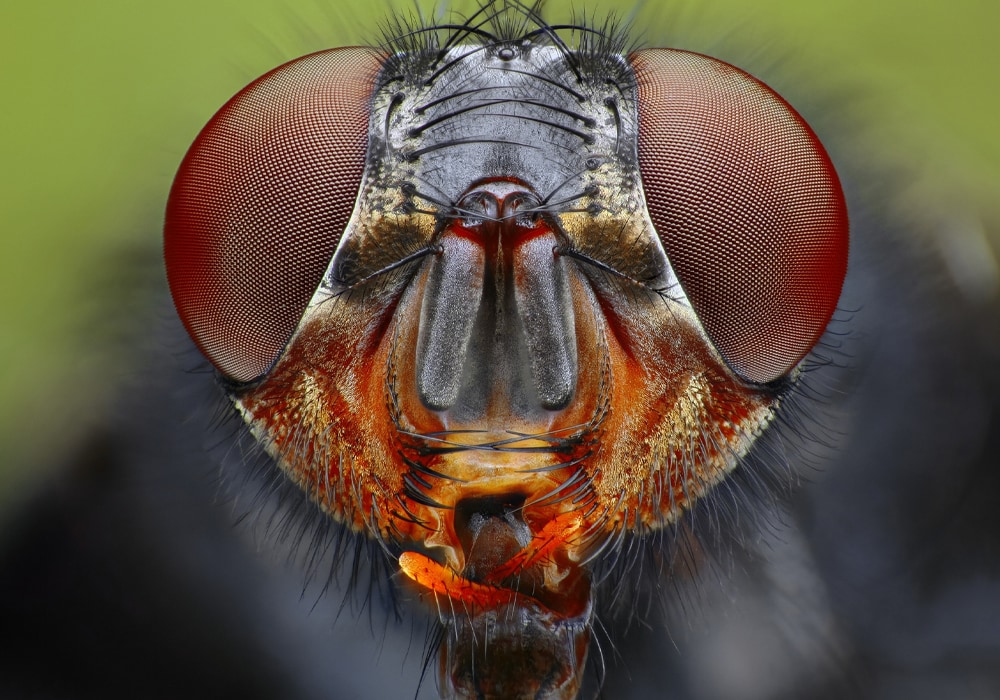
The fly is also a potent spirit guide for those who feel helpless. Flies are small and weak, but cannot go through life paralyzed by fear. Their lives are short and so they must make each day count. The fly spirit animal instructs us to find courage and take action even when it feels impossible.
The fly spirit animal uses its sharp vision to teach its followers to seek out new perspectives.
Fly Totem Animal
The fly totem anima is linked to prosperity, growth, and influence. People who rely on the fly totem animal are quick to act and they never miss opportunities. The fly totem also provides wisdom that can teach you how to survive difficult situations and rebuild after disasters.
People who are connected with the fly totem animal are mobile and fast. They are experts at adapting to their environment and changing their scenery whenever necessary.
The growth stages of the fruit fly can symbolize the changes that human beings go through. The fly totem can guide us through these changes. Additionally, this totem may represent the negative aspects of human nature. The fly totem can be a tool for suppressing harmful impulses.
The fly totem teaches us not to accept things as they are but to expect change and facilitate growth. Never lose hope as good times will soon come. Never give up on your dreams because perseverance is the key.
Fly Power Animal
Like the fly totem, the fly power animal also signifies growth. The fly power animal is associated with accountability. It teaches us to acknowledge our shortcomings and strive to be better people.
Every action you might take has consequences and the fly power animal stands for the importance of facing these consequences.
The fly power animal may represent preparedness. The fly power animal encourages you to go with the flow, however it reminds you that this is not the same thing as behaving carelessly. Careful thought and preparation will help you to overcome the unexpected obstacles that life never fails to provide.
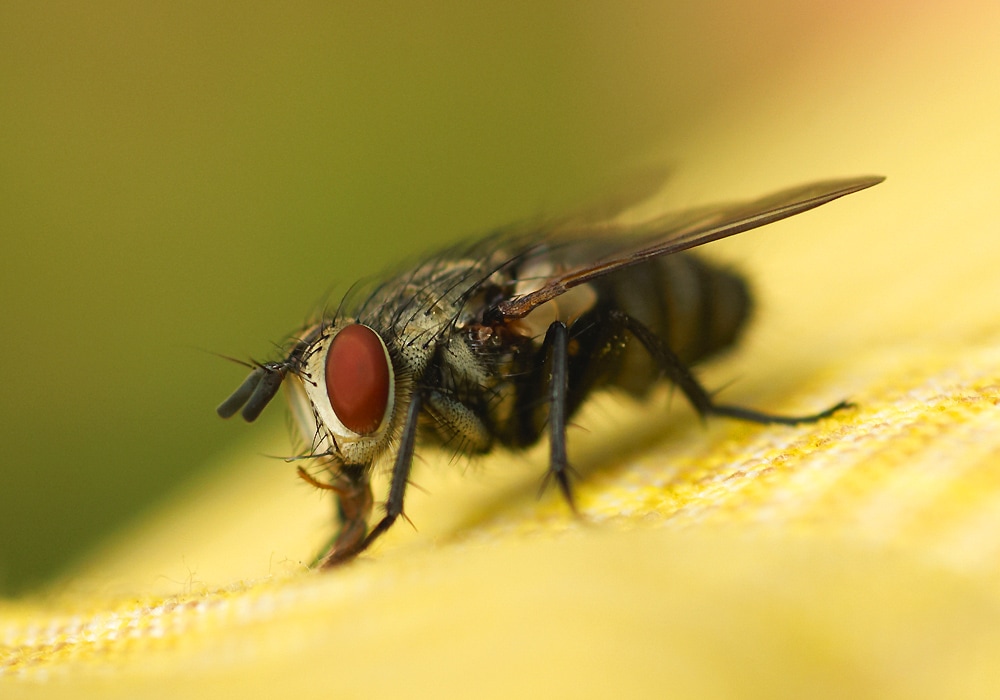
Despite the bad omens associated with this tiny insect, you don’t need to be afraid of flies. Bad changes may come your way, but these are always opportunities to grow stronger and more wise. Often, hard changes are exactly what we need in order to become our best selves.
The fly power animal also involves the power of observation. Like the “fly on the wall,” this power animal teaches us that we can learn a lot about the world around us by watching carefully.
Fly Tattoo Meaning
When thinking about tattoo models, we imagine beautiful cool things. Most people do not expect to see such a dirty insect inked on their skin. However, many people choose to have this image on their bodies, and they have a good reason for it.
Beauty is in the eye of the beholder. The meaning of a fly tattoo depends on the owner’s perception, and it is usually associated with perseverance, good judgment, or religious affiliation.
A fly tattoo may also stem from a general interest in insects. The basic fly tattoo is the most common you will see. Simple and placed anywhere on your body; it signals a love for the neglected or misunderstood.

A tattoo of a frog eating a fly represents playfulness and the cyclical stages of life.
It’s not super common, but some tattoos use flies to represent death and decay by pairing them with macabre imagery. In these cases, a fly tattoo may be a “memento mori,” or a reminder that death is inevitable and life must be cherished.
Other possible meanings for a fly tattoo include:
- Perseverance
- Inner beauty or strength
- Intuition
- Observation
- Renewal
- Reincarnation
- Positivity
Conclusion
Although flies are not often well-liked, the fly can be a meaningful symbol that has more wisdom to it than people may realize. Although flies are usually linked with death, decay, and darkness, these creatures also act as warnings helping us to prepare for and prevent terrible outcomes. Additionally, flies can help us to see parts of ourselves which we have fought to ignore. In this role, the fly guides us towards opportunities to grow into better human beings.
Related

